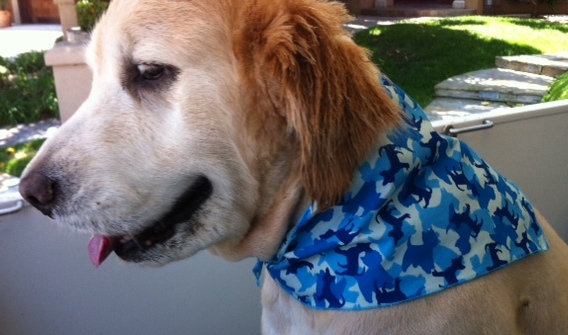Dog Teethbrushing 101: What If I Can’t?
This article is the third in our series on doggie tooth brushing, a subject near and dear to our hearts at Awesome Doggies. Previous posts gave advice on tooth brushing supplies, and how to introduce your dog to daily tooth brushing. But what if daily doggie tooth brushing just isn’t in the cards at your house? What else can you as a caring dog owner do to support your pet’s dental health? Give them things to chew on that will help clean their teeth, and ask your groomer to add teeth cleaning to your pet’s regular grooming sessions.
Special Food
You’ve probably heard that it’s best for your dog’s health to avoid feeding table scraps. From the oral hygiene perspective, hard (dry) dog food is a good way to go. Hard kibble is proven to reduce the ability of plaque to stick to the teeth. It’s more effective for some dogs than others, but every little bit you can do will help. Hill’s Science Diet group actually has a line of food called t/d that was designed to target plaque build-up. Science Diet is available through veterinarians. My previous dog ate it for years – I felt like it helped.
Toys
Plenty of chew toys are available in the marketplace that promote good oral health. For example, the Plaque Attacker line includes dental toys, ropes, and raw hide chips that are designed to remove plaque while your pet chews. Even if your dog is a constant, aggressive chewer of everything, it’s important to give him toys that are designed to remove plaque whiling being easy on teeth and gums, and at the same time, holds up to the punishment your dog’s choppers can dish out. Experimentation is the name of the game here – it will take some trial and error to find the right toys that work for your dog.
Treats
Dental chews are great therapeutic treats that are easy on the teeth and prevent tarter and plaque build-up. Greenies are probably the best known brand, but there are many choices out there. Before selecting a dental health chew, look the item up online, and see how it stands with the Veterinary Oral Health Council (VOHC).
 Professional Teeth Brushing
Professional Teeth Brushing
If you aren’t brushing your dog’s teeth daily, ask your groomer to incorporate teeth brushing in your pet’s regular grooming routine. Groomers can either brush your dog’s teeth (using toothbrush, toothpaste & breathspray), or for a more thorough clean, perform a water-pik type oral irrigation such as PlaqClnz. We offer the PlaqClnz service as part of our mobile grooming routine. We also do regular teeth brushing.
Teeth Scaling and Plaque Removal
If your dog has heavy plaque build-up or advanced gum disease, tooth brushing or water-pik treatments aren’t going to be enough. You’ll need to take your pet to a vet or anesthesia-free technician to have the build-up scraped from their teeth. Veterinary teeth cleaning is similar to what you experience when visiting your dental hygienist, except that your dog will be placed under general anesthesia for the entire process and will usually get a course of precautionary antibiotics. Anesthesia-free dental cleaning is available from non-vet providers, and much easier on your pet, but veterinarians caution against the risks. Do your homework and make an informed decision about what is best for your particular situation.
